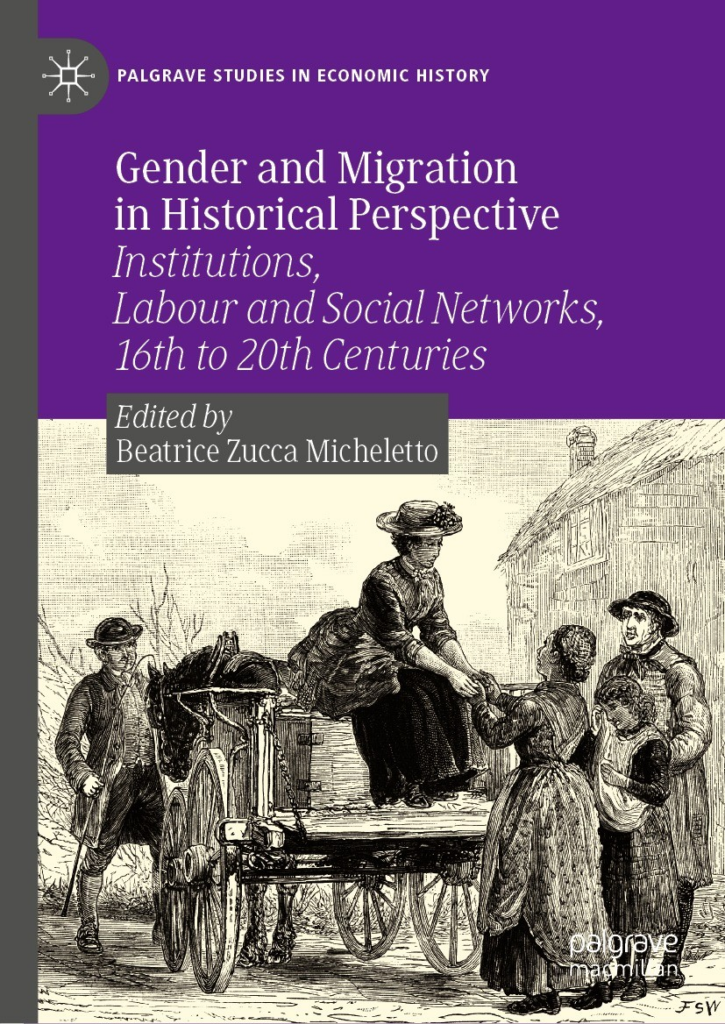1. Our member from Australia, ECI Victoria Souliman, has won first prize of the 2022 AAANZ Early Career Publishing Program
Victoria Souliman (WG2), University of Sydney (adjunct Lecturer at the University of New England) and her proposal “’The Remoteness that Pains Us’: National Identity, Expatriatism and Women’s Agency in the Artistic Exchanges Between Australia and Britain in the 1920s and 1930s“ has won first prize of the 2022 AAANZ (Art Association of Australia and New Zealand) Early Career Publishing Program). In her proposal Victoria Souliman aims to trace the careers of a number of Australian expatriate women artists and critics, such as Dora Meeson, Ethel Anderson, Edith Fry and Clarice Zander. She shows how they have been systematically excluded from the existing accounts of Australian art and speculates as to what the effects of their inclusion might be.
The official announcement is available here: “We felt that the project was extremely timely, given the recent National Gallery of Australia exhibition Know My Name, and also noted Souliman’s considerable publishing since the completion of her thesis.“
2. Publication / Gender and Migration in Historical Perspective
A collective volume edited by Beatrice Zucca-Micheletto (WG3) has been published by Palgrave Macmillan-Springer and includes publications from different members of our network .
Gender and Migration in Historical Perspective Institutions, Labour and Social Networks, 16th to 20th Centuries (Palgrave Macmillan-Springer, 2022)
Part of the book series: Palgrave Studies in Economic History (PEHS)
The table of contents displays the work from Nicoleta Roman (WG3), Mateusz Wyżga (WG1), Joana Maria Pujadas-Mora (WG1), Veronika Čapská (WG2), and Maija Ojala-Fulwood (WG2).
This edited collection focuses on migrant women and their families, aiming to study their migration patterns in a historical and gendered perspective from early modernity to contemporary times, and to reassess the role and the nature of their commitment in migration dynamics. It develops an incisive dialogue between migration studies and gender studies. Migrant women, men and their families are studied through three different but interconnected and overlapping standpoints that have been identified as crucial for a gender approach: institutions and law, labour and the household economy, and social networks. The book also promotes the potential of an inclusive approach, tackling various types of migration (domestic and temporary movements, long-distance and international migration, temporary/seasonal mobility) and arguing that different migration phenomena can be observed and understood by posing common questions to different contexts. Migration patterns are shown to be multifaceted and stratified phenomena, resulting from a range of entangled economic, cultural and social factors. This book will be of interest to academics and students of economic history, as well as those working in gender studies and migration studies.

3. A study on adoptions from Sri Lanka conducted by Francesca Falk (WG2) and her team
A study adoptions from Sri Lanka “Adoptionen von Kindern aus Sri Lanka im Kanton St. Gallen 1973-2002” on commissioned by the Canton of St. Gallen and conducted by Francesca Falk and her team was widely discussed in the media, see for instance here. The study is available online in German and will also be published in English at the end of September.
Francesca Falk appeared on Swiss television in a program on the question of how refugees from Ukraine and other countries are treated differently in Switzerland:
- Rassismus und Vorurteile spielen eine Rolle (in German)
- Geflüchtete – Wer ist willkommen? (in German)
Francesca Falk has published a new book “Der Schwarzenbacheffekt. Wenn Abstimmungen Menschen traumatisieren und politisieren”. After a tough referendum campaign, the initiative « Against Excessive Alienation » – better known as the so-called « Schwarzenbach Initiative » – was narrowly rejected at the ballot box by the voting men in Switzerland on June 7, 1970. Around a third of the « foreign workforce » in Switzerland at the time – 300,000 people – was threatened with expulsion because it did not have a Swiss passport. When this vote is recalled, the right-wing populist James Schwarzenbach often takes center stage. “Against this background, in 2020 – exactly 50 years after the vote – it seemed urgent to me to change perspectives. Accordingly, in our seminar at the university of Bern we explored the question of how the people targeted by the initiative experienced the referendum campaign and what traces these experiences left in their lives. Our contemporary witnesses told us of their precarious living conditions, children left behind, discrimination and exclusion, but also of friendship and resistance. Many of these witnesses were politicised by the initiative and moved to a commitment that continues to shape social life in Switzerland today.” The oral interviews which form the basis of the published portraits were conducted by students of the university of Bern and are also available as audio files here.
4.Conferences in Romania
Constantin Ardeleanu (WG3, Romania) co-organised the international workshop Disturbance on the Danube: State, Infrastructure and the Environment on 29-30 September 2022 at New Europe College Institute for Advanced Study, Bucharest.
Nicoleta Roman (WG3, Romania), coordinator of the Unknown stories project presented her first story, « The Last Wishes of a Merchant Woman. Safta Castrisiu, Her Memory in the Nineteenth Century Urban Culture and the Investment in Rural Education » at the international conference Arrangements before the ‘great passage’. Testamentary practices and their social, patrimonial and religious implications (Europe, 16-19th centuries) on 16 September 2022 at ‘Nicolae Iorga’ Institute of History, Bucharest.